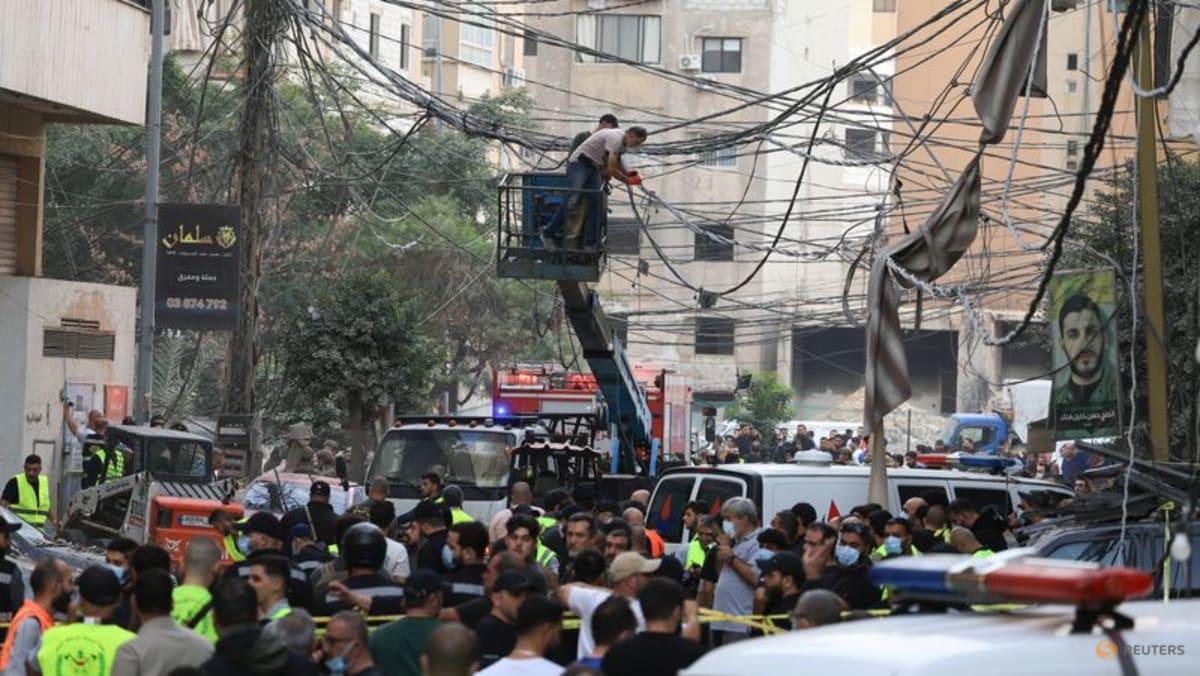Hezbollah Military Chief Haytham Tabatabai Killed in Israeli Beirut Strike Post-2024 Ceasefire
 Lebanon
Geopolitics
Lebanon
Geopolitics

Hezbollah's top military chief, Haytham Ali Tabatabai, was killed in an Israeli strike in Beirut post-2024 ceasefire. The attack in a residential area killed fi
Hezbollah's Top Military Commander Haytham Ali Tabatabai Killed in Beirut
In a significant development that underscores the fragile peace in the Middle East, Haytham Ali Tabatabai, Hezbollah’s most senior military leader, was reportedly killed in an Israeli airstrike in Beirut’s southern suburbs on Sunday, November 23. This targeted killing marks the most prominent elimination of a Hezbollah figure since the November 2024 ceasefire, which aimed to bring an end to over a year of intense hostilities, including a two-month full-scale war between the militant group and Israel.
Tabatabai’s demise occurred amidst Israel’s ongoing strikes against Lebanon, which Tel Aviv claims are aimed at Hezbollah operatives and infrastructure. The strike in Beirut was particularly devastating, impacting a densely populated residential area and resulting in the deaths of five individuals while injuring 28 others, according to Lebanon’s health ministry.
A Commander's Rise Amidst Conflict and Regional Operations
Largely unknown to the general Lebanese public, Tabatabai ascended to his top military role following the substantial losses of senior Hezbollah commanders during the recent conflict with Israel. His appointment signaled a new generation of leadership within the Iran-backed group. Hezbollah itself confirmed the death of "the great commander" Tabatabai, highlighting the significance of his position.
Prior to assuming the military chief role, Tabatabai was reportedly "responsible for the Yemen file," a crucial portfolio indicating his involvement in regional proxy conflicts. Sources close to the group revealed his Iranian lineage on his father's side, coupled with Lebanese citizenship through his mother. American intelligence further details his extensive operational history, noting his involvement in Syria where Hezbollah’s armed faction provided critical support to Bashar al-Assad's regime. The U.S. Treasury Department, which designated him a terrorist in 2016 and offered a $5 million reward for information leading to him (also known as Abu Ali Tabatabai), specifically cited his command of Hezbollah’s special forces in both Syria and Yemen.
The Axis of Resistance and International Implications
Tabatabai’s return to Lebanon in July, following Israel's elimination of another top commander, Fuad Shukr, suggests a strategic re-deployment within Hezbollah’s ranks. His long-standing involvement with the group dates back to the 1980s, according to the Israeli army, which also identified him as the head of Hezbollah's operations in Syria.
The incident comes against a backdrop of heightened regional tensions, where Hezbollah and Yemen's Houthi rebels are key components of Iran’s "axis of resistance" against Israel. A November 2024 United Nations report underscored Hezbollah's role as a major supporter of the Houthis, providing training either in Iran or at its facilities in Lebanon.
This strike is the latest in a series of targeted operations by Israel against Hezbollah’s leadership. Past operations have seen the elimination of prominent figures such as Fuad Shukr, Ibrahim Aqil (leader of the elite Radwan unit), and Ali Karake (the group's third-ranked military commander), profoundly impacting the militant organization's command structure. The ongoing cycle of strikes and counter-strikes threatens to further destabilize an already volatile region.